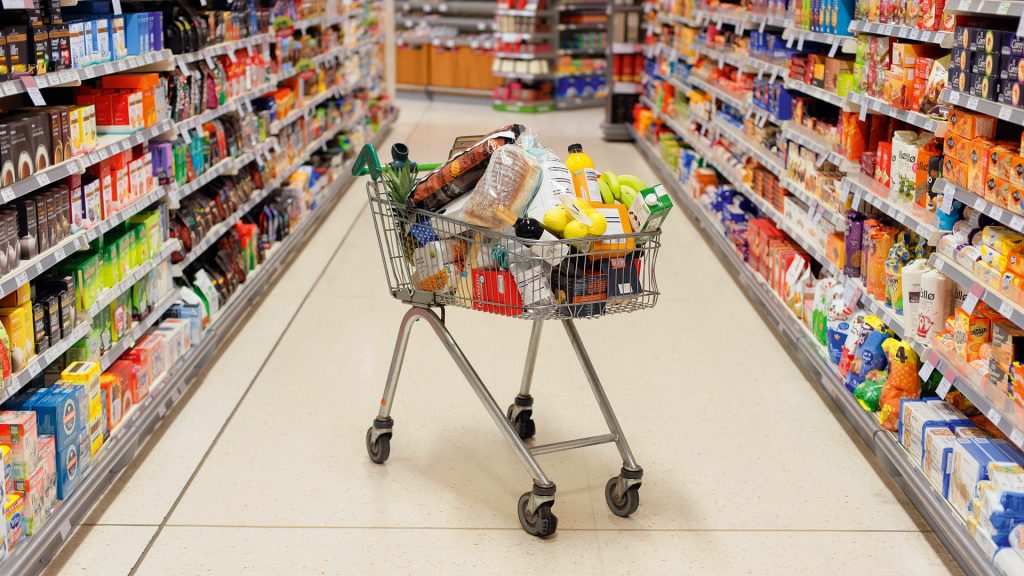Amidst the surging cost of living, the UK was hit by food inflation in early December 2022, and it is likely to continue in the new year
The past year has been tumultuous for the UK’s economy as the energy crisis, and economic distress was on the rise. The domestic gas prices recorded in November 2022 were 129% higher than in November 2021. Sadly, the new year failed to bring any good news for UK residents. Amidst the surging cost of living, the UK was hit by food inflation in early December 2022, and it is likely to continue in the new year. The Bank of England predicts that the inflation will continue owing to the high energy bills before falling slightly in late 2023.
Not a holly jolly for UK households:
Fresh food prices rose to 15% in December 2022 from 14.3% in November 2022 in British supermarkets. The British Retail Consortium trade body warned this was the highest price rise in the fresh food category that was ever recorded. Additionally, the cost of tinned food and pasta rose by 11% in December 2022.
Collectively these figures pushed food inflation up to 13.3% in December 2022 from 12.4% in November of the same year. Such data was reflected after the recent report by BRC and data firm Nielsen, who claim this was the highest monthly rate since it began collecting data in 2005.
In the peak of the holiday season, when households stock up on food and beverage, UK residents were burdened with price pressure. BRC’s chief executive, Helen Dickinson, said that it was a challenging Christmas for many households in several parts of the United Kingdom.
The discounted relief:
The Christmas spirit was somewhat saved by retailers offering heavy discounts on non-food products. The overall shop price inflations fell from 7.4% in November to 7.3% in December as high street stores and online retailers were giving steep discounts in an attempt to clear piling stocks.
Aldi UK, the German multinational family-owned discount supermarket chain, reported that sales went up by 26% to top £1.4bn in the UK and Ireland for the first time in December since the shoppers searched for big discounts. Strong sales were recorded for fresh meat products, including poultry and pork, which went up by 28% for the month. Furthermore, the discounter highlighted that the sale of chilled desserts and cheese increased by 30% and 50%, respectively. With the World Cup fever coinciding with the holiday season, sales of snacks such as crisps and nuts were up more than 40% for the first time ever.
The suffering manufacturing industry:
December was a gloomy month for manufacturers as new orders, employment, and production further plummeted. The S&P Global/Cips UK manufacturing purchasing managers’ Index sank to a 31-month low of 45.3 in December, going down from 46.5 in November. The numbers indicated the fifth successive month of contraction in United Kingdom factory output.
The chief economist at the Chartered Institute of Procurement and Supply, John Glen, pointed out that overall orders declined at the fastest rates in over a decade as domestic customers were forced to cut down expenditure. Likewise, overseas orders were cancelled because of the stringent Brexit customs requirements that increased the costs and delayed delivery.
Due to the ensuing geopolitical crisis between Ukraine and Russia, the UK economy is not finding respite. The tension continues to drive up energy prices. Data collected by the Office of National Statistics showed that 6% of common British households ran out of food as they were unable to afford it anymore.
Furthermore, another quarter of the population could not keep up with the electricity prices and failed to afford to keep the main living room consistently warm. Therefore, the rising cost of living is cutting deep through the UK population as they struggle to maintain the simplest lifestyle. In 2023, the entire population and all of the UK’s industries will be in dire need of support and assistance from their government for sustenance.
